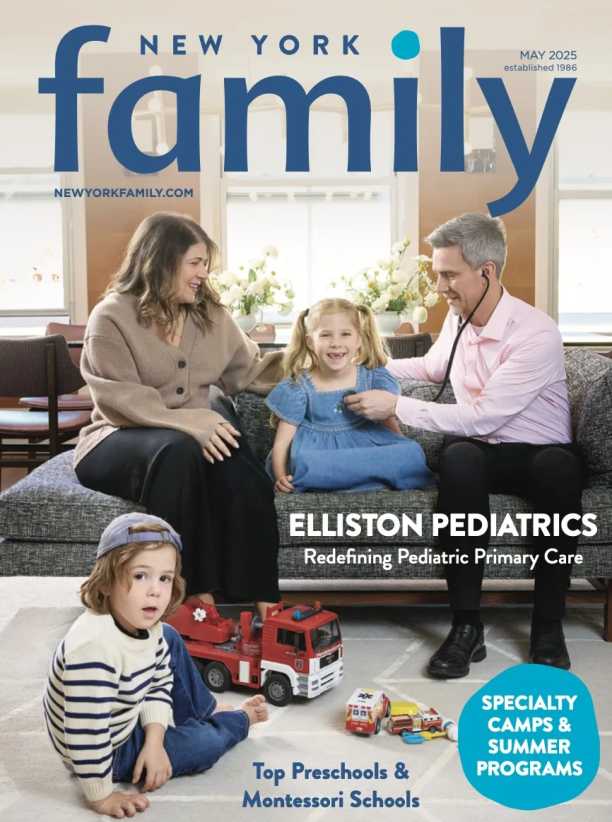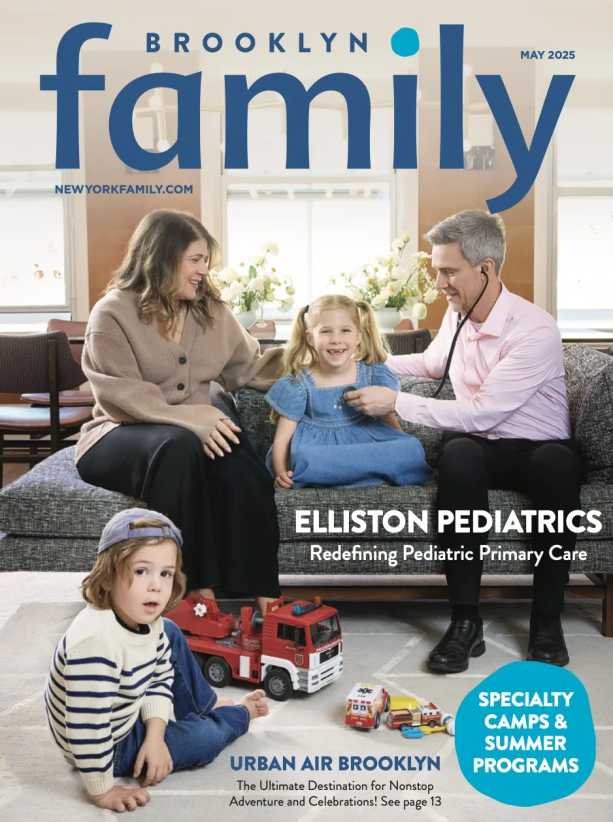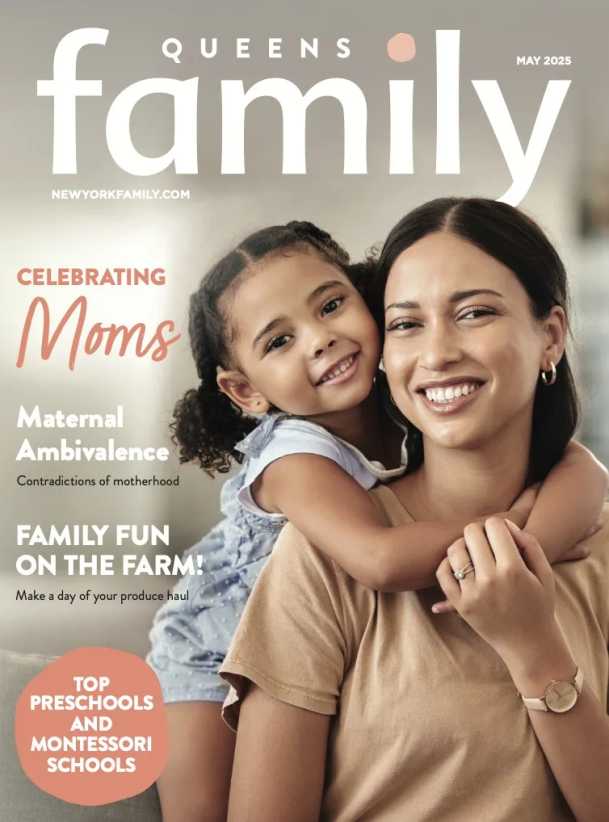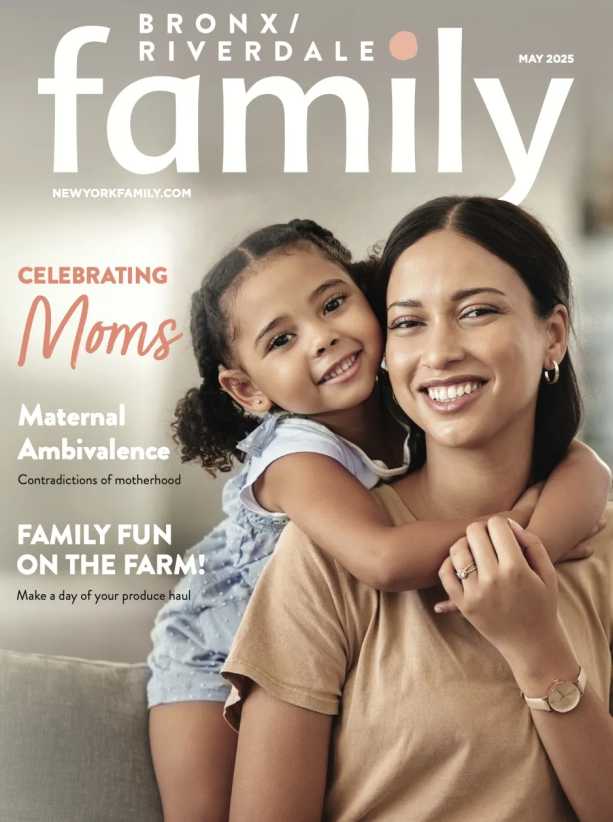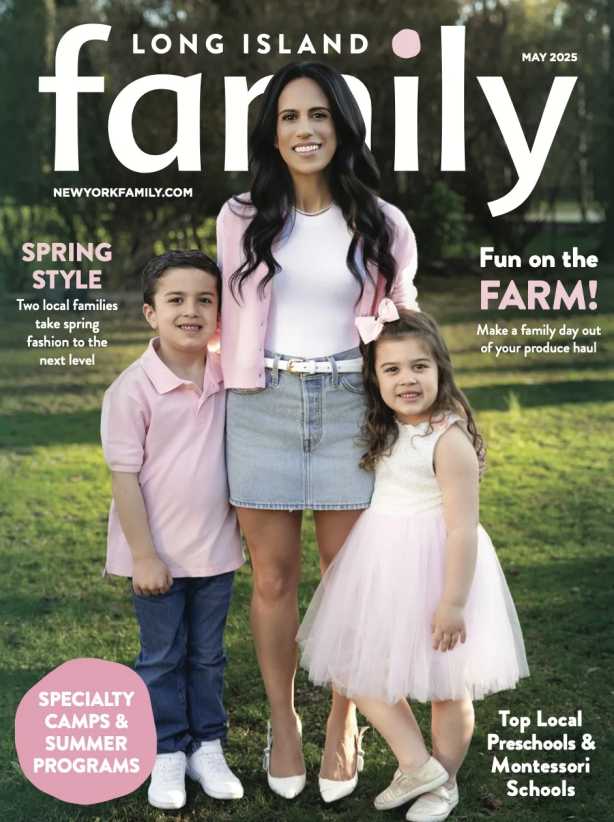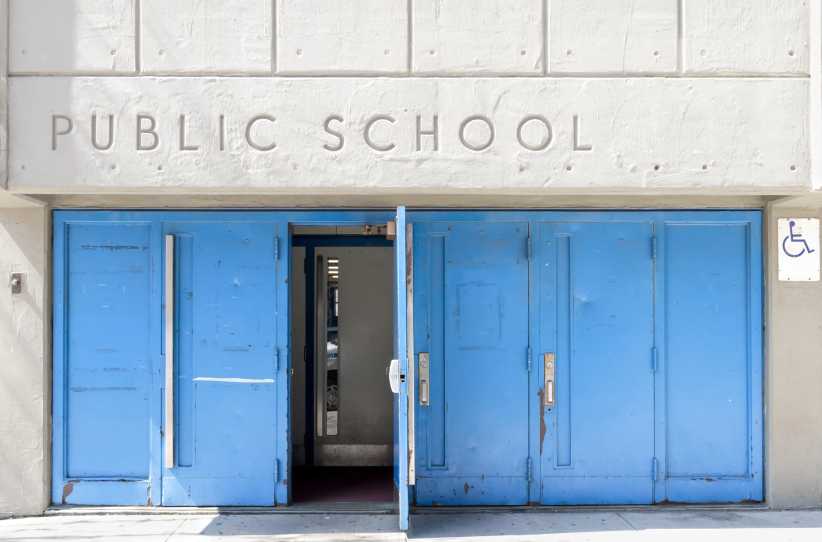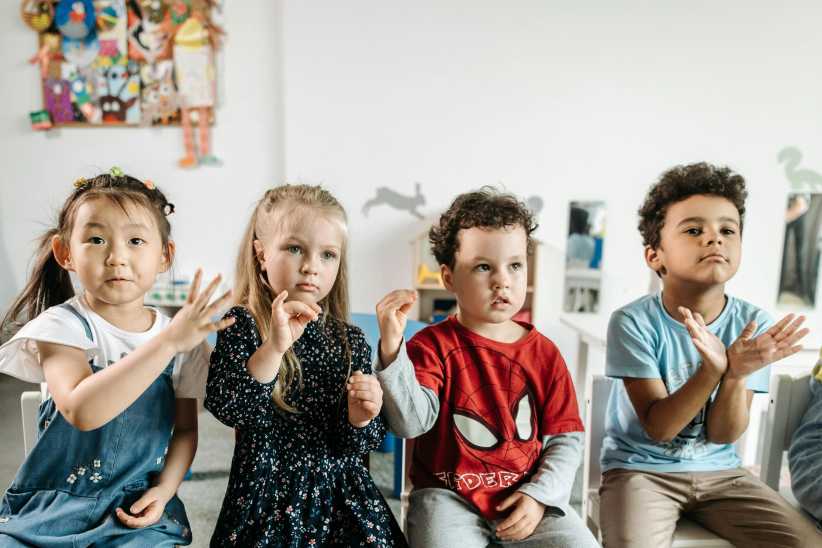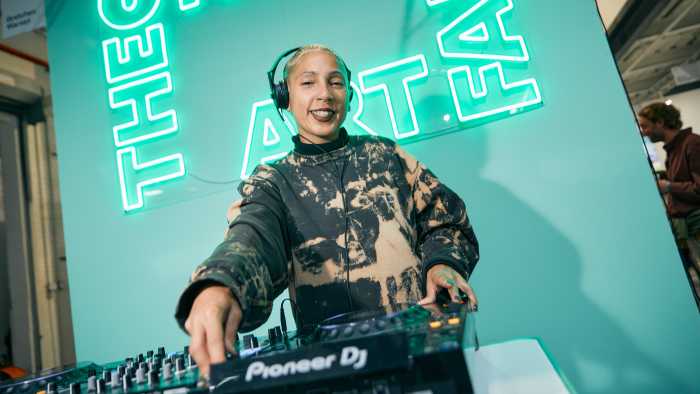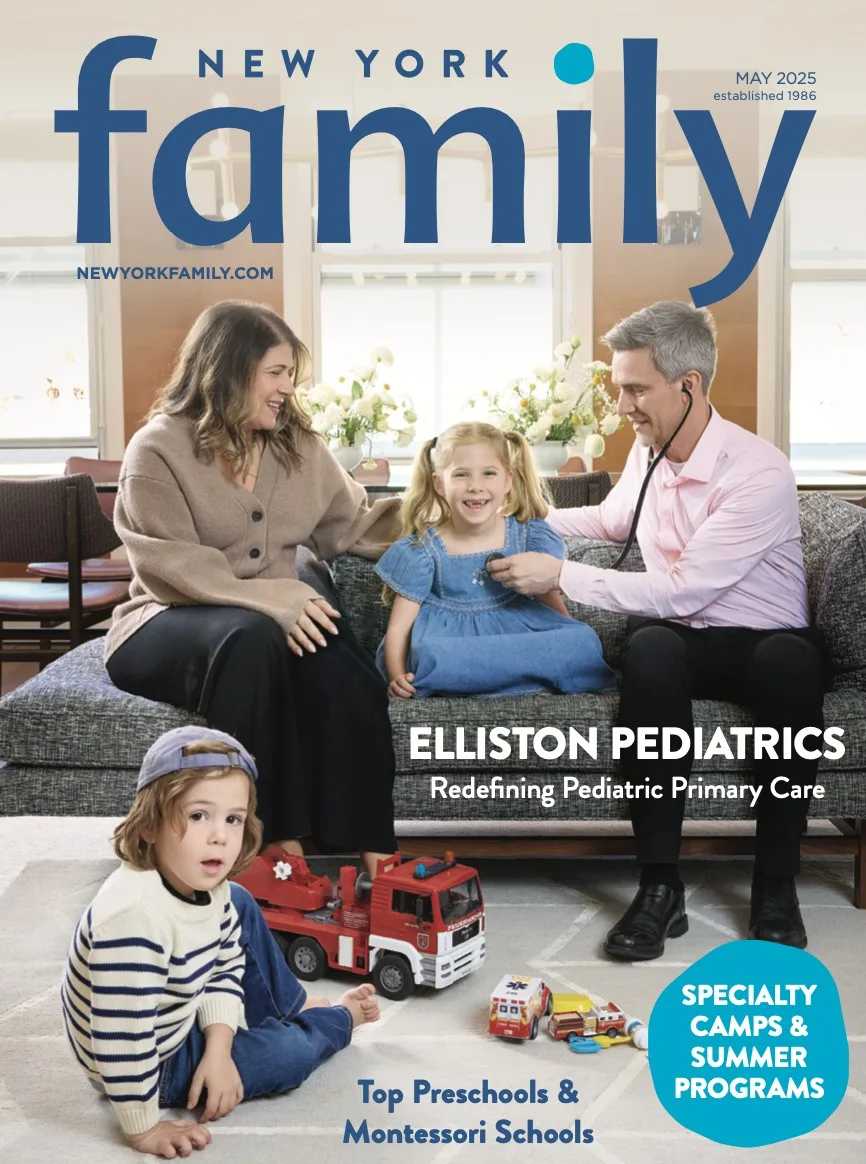Unique in its offering of both a full-day childcare environment and a partial-day curriculum option, Upper Valley Preschool provides children and their families with “the strength of a village” in the midst of the city.
In light of the school’s upcoming open house–on Thursday, May 21 from 7-8pm–we caught up with director Maria Dantos-Katsaros.
You have a beautiful, relatively new home on the Upper West Side, but you also started out a bit smaller. For parents who aren’t familiar, what’s the brief recent history of the school’s founding and how it grew up so fast?

Thank you. Yes, we are blessed to have found such a lovely, large space. You are correct, we started rather humbly a few years back essentially with one teacher, a couple of children, some crayons, and a vision. We found a two-bedroom apartment on 88th and Amsterdam, painted the walls a happy green, and made a cozy schoolhouse with 12 amazing children with very courageous and supportive parents. It was very collaborative, with patents and teachers creating the learning environment together.
One thing that distinguishes your school from other nursery programs is that you also offer day care! How does this work –how young does a child have to be to be in day care? What age does the preschool start? Does being in day care guarantee you a spot at the preschool? And, presumably, you can apply to the preschool but not be in the day care?
We think of it as a curriculum-rich experience in an all-day setting. We accept children starting at 3 months of age and the teachers are early childhood educators. They create dynamic, milestone-based curriculum, do observations and daily reports in addition to the care giving. Looking at the general New York early leaning options, it seemed that there were either full-day ‘day cares’ or partial day (ostensibly more stimulating) nursery and preschools, leaving me wondering what professional families who also value education had as options.
So while we consider the entire community ‘school’ the upper level is for the infants and toddlers (3 months to 23 months) and at 2 years old, they move to classrooms on the lower ‘preschool’ level. Since all classes continue to have enrichment activities, trips and lessons it’s really just the physical space that is the main difference, and kind of a metaphorical shift into the next stages of development.
Any child accepted as an infant or toddler has a space to grow at the school until they reach Kindergarten. Yes, we accept applications at every age.
To help parents understand their offerings, many nursery schools speak of having an overriding philosophy or approach. Does Upper Valley have one, or is it a mix of things?
We draw from different pedagogical philosophies, but steer clear from adhering to one doctrine. Essentially, we are creating curriculum with unified pillars, but allowing for teachers to have creative license and ability to tailor lessons organically to the individual children. My MSEd is in Educational Linguistics and I have taken studies of language acquisition and applied it to knowledge acquisition. We intentionally have teachers from different schools of training, including many international so that the children are exposed to different teaching styles, and in such are able to identify their learning style early on. We love the independence and citizenship-building of Montessori, the visual art component of Reggio Emelio, interactive displays of Bank Street, etc. What works for one child may not resonate with another, and it’s our job as educators to create the solution. The overarching tenets, though, have to do with the name of Upper Valley.
In your experience, what are the top three things families seem to care most about when picking a nursery school? And do you think those are the right things, or you would add something else? And let’s ask the dreaded question: how important is ex-missions guidance to families, and what do you do about it?
Honestly, I think that the primal parental instincts act above anything else. Families want to see a safe, clean, nurturing environment where they could imagine their child being fostered in their growth. After that, they look to see how their family values fit in accordance with the school philosophy. We offer a wide breadth of opportunities, including enrichment classes such as Music Together, Yoga, Dance and Visual Arts, which tends to appeal to parents who would like to have their children participate in ‘extracurricular’ activities, but may not have the time to do so on the weekends. Exmissions are a very big buzzword in the preschool circuit, and I’m personally experiencing the frenzy with my own child for the first time.
I worked as an admissions officer at University of Pennsylvania years ago, and got the inside view of what goes into the admissions decision-making process. Many things are remarkably similar for those making the decisions for Kindergarten and the Ivy League.
We try to break it down for parents, and focus on what is truly important to the family for their child’s education, and to tune out the noise. We have a few evenings per year where we have directors from different elementary school options attend, and we talk about the Pre-K curriculum we implement in order to ensure that it is tailored to the specific objectives of the Kindergarten placement outcome. I also ask alumni parents to attend to help talk new parents through the process on a personal level as well. Once the parents identify what it is they are looking for in an elementary school, we do a more targeted approach. Maybe I’ll set up a tour for the parents at different schools, talk about test preparation, milestones, etc.
Why the name Upper Valley? It’s lovely and evocative, but I’m not sure it’s evocative of anything on the Upper West Side. Please clarify.
It’s nice to hear that it is evocative. It certainly is for me as it is the region on the Connecticut River border of New Hampshire and Vermont where I came of age. It is also home to Dartmouth College. Many tend to romanticize their childhood memories, but in the case of this special enclave, every time I visit with my own (3.5 year old boy) child, I run into more old friends who have chosen to move back to raise their own children. In a wonderful twist of fate, we also have a family at UVP where the father is also from the Upper Valley! Raising a child in New York always seemed daugnting and potentially alienating. I wanted to create a place in the city with a sense of a village to give families the strength that comes from positive community building.
The Upper Valley is a special place with great diversity, but on a small, safe scale. It’s also very cold and rural, so people tend to get creative about making things festive. It sounds kind of folksy, but we love to do parent events like potlucks, build flower boxes for the sidewalk, and baby clothes tag sales along with (last night’s PTO wine tasting and silent auction). There are opportunities to learn from one another’s strengths, and be positive role models for the children. I feel that UVP is a little enclave working in the same spirit, so it’s the best of both worlds.
Can you tell us a little bit about your recent partnership with a Japanese preschool?
In another fortunate twist of fate, we have been working on collaborating with a sister preschool in Numazu, Japan. When I was 15 years old, I was awarded a scholarship by a well-respected Japanese educator to study in Japan for a summer. Many years later, we met again, this time with him visiting Upper Valley Preschool and him seeing how he had inspired me to create a school like he did. We are working on a program which will include an exchange where teachers from each school will visit and teach in the sister school for a couple of months throughout the year. It’s an amazing professional development and personal experience that I am really excited to give to our deserving teachers.
To learn more about Upper Valley Preschool, and RSVP for their next open house, visit uppervalleypreschool.org!
